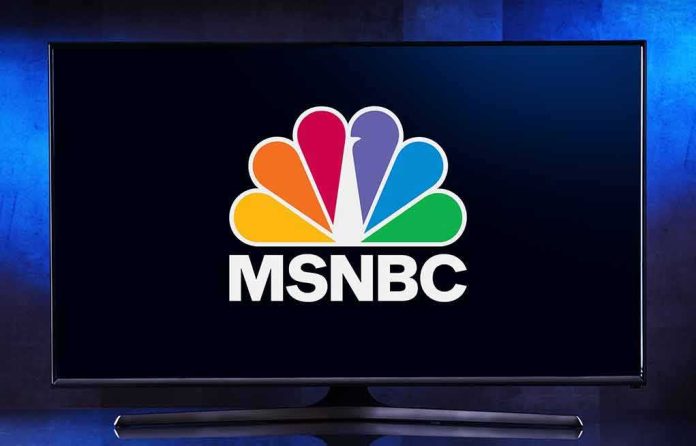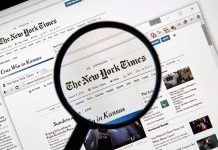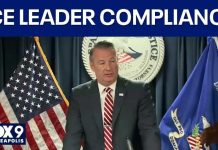
When the president and a sitting federal regulator publicly target a late-night comedian, the lines between political power, media freedom, and government oversight blur in ways that could reshape American broadcasting.
Story Snapshot
- Donald Trump demanded NBC fire Seth Meyers after Meyers aired monologues criticizing Trump and referencing Epstein-related emails.
- FCC Commissioner Brendan Carr amplified Trump’s demand, raising regulatory stakes and intensifying debate about political pressure on media.
- The incident unfolded amid heightened scrutiny and recent suspensions of other late-night hosts, underscoring the politicization of TV satire.
- Media analysts warn the episode could set dangerous precedents for free speech and editorial independence in American television.
Trump’s Demand and the Regulatory Echo Chamber
Donald Trump’s direct call for NBC to fire Seth Meyers, delivered via Truth Social, didn’t just add another chapter to his ongoing feud with the media—it set off a chain reaction. Trump accused Meyers of “Trump derangement syndrome” after Meyers devoted multiple monologues to government shutdowns, mortgage plans, and explosive Epstein-related emails. The situation escalated when FCC Commissioner Brendan Carr reposted Trump’s demand on X, transforming a celebrity spat into a high-stakes regulatory drama.
Trump’s ability to rally his base and leverage public platforms is well established, but the involvement of a federal regulator marks new territory. The FCC’s traditional role is to ensure broadcast compliance, not to mediate content disputes rooted in political satire. Carr’s amplification of Trump’s message brought regulatory authority uncomfortably close to the editorial decisions of network television, leaving NBC in the crosshairs of both political and governmental scrutiny.
Late-Night Television in the Political Crosshairs
Late-night television has long served as a cultural barometer, channeling national anxieties through the lens of comedy. In recent years, hosts like Jimmy Kimmel and Stephen Colbert have faced suspensions and cancellations amid political controversy, signaling a shrinking safe space for satire. Seth Meyers’ monologues on NBC’s Late Night, laced with political references and pointed criticism, have made him a lightning rod in an era of deepening polarization. Trump’s demand and Carr’s repost didn’t happen in a vacuum—they landed in a media landscape already under siege.
As Democrats push to unseal the full Epstein files, late-night hosts have seized on the moment, weaving the scandal into their monologues. Meyers’ willingness to tackle such topics reflects both editorial independence and a growing appetite for risk among television satirists. The mounting pressure from both political actors and regulators, however, threatens to chill this brand of commentary, raising questions about the future of dissent in American television.
Regulatory Boundaries and Free Speech Flashpoints
The FCC, established to regulate interstate communications, has historically steered clear of content-based interventions, citing First Amendment protections. Carr’s decision to amplify Trump’s demand, however, blurs these boundaries, prompting legal scholars and media analysts to sound alarms about regulatory overreach. While the FCC has authority over broadcast licenses, direct involvement in editorial disputes risks undermining the agency’s independence and chilling free expression on the airwaves.
Media experts argue that the episode sets a worrisome precedent, potentially emboldening future attempts to police dissenting voices. The chilling effect may ripple beyond NBC and Meyers, prompting networks to reconsider the tenor of their late-night programming and editorial policies. For American conservatives, the drama spotlights the tension between calls for accountability in media and the bedrock value of free speech—a conflict that resists easy resolution but demands careful scrutiny.
Stakeholders and Power Dynamics: Who Holds the Cards?
The controversy draws in a constellation of stakeholders: Trump, whose influence over his base remains formidable; Meyers, whose editorial independence is both shield and sword; NBC executives, forced to navigate the minefield of public pressure and regulatory attention; and the FCC, whose impartiality is now under the microscope. Power dynamics shift with each development, as public opinion, political actors, and industry leaders weigh the costs and benefits of intervention or silence.
NBC’s decision on Meyers’ employment will ripple through the broader media ecosystem, affecting not just ratings and advertiser relationships but also the boundaries of acceptable political satire. The regulator’s shadow looms large, raising the stakes for future confrontations between government and media. In this unfolding drama, the ultimate outcome remains uncertain, with networks, regulators, and comedians all waiting to see where the line will be drawn.













